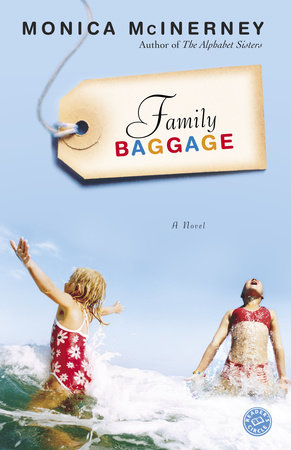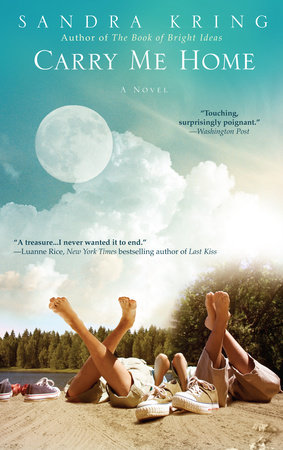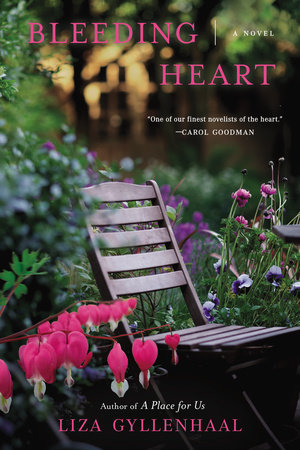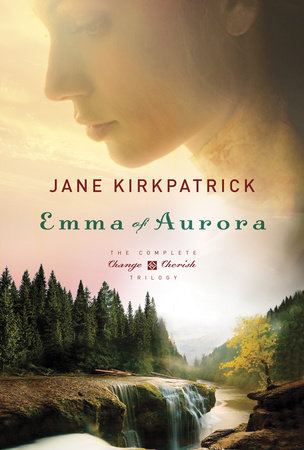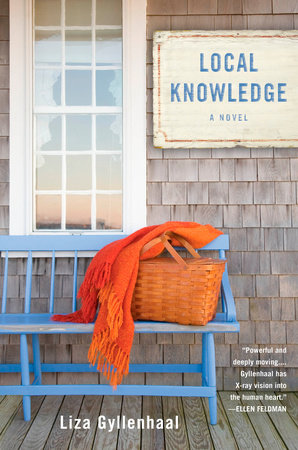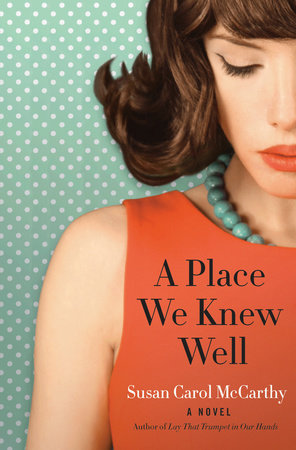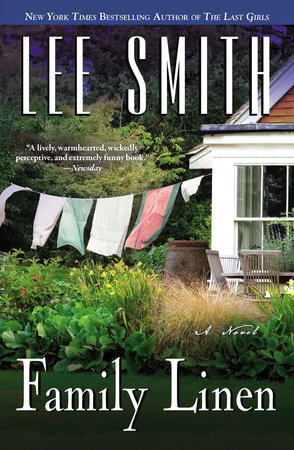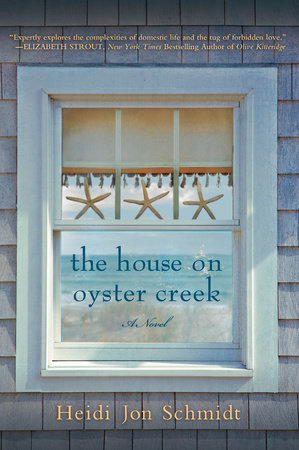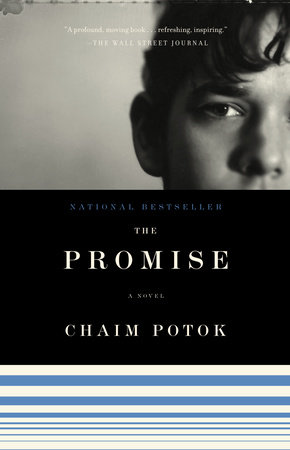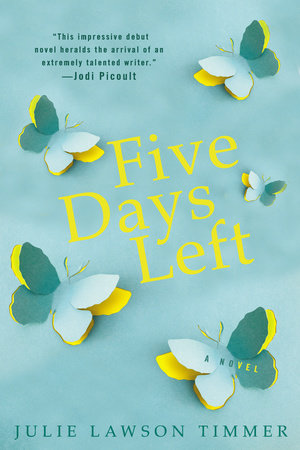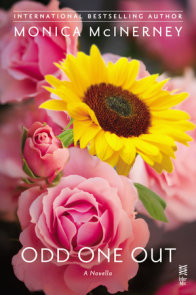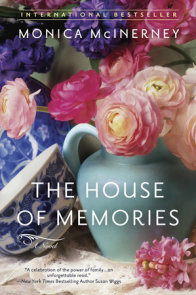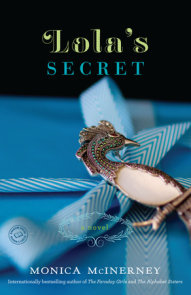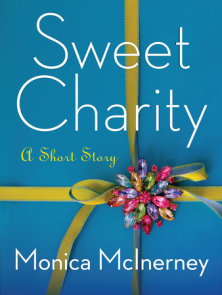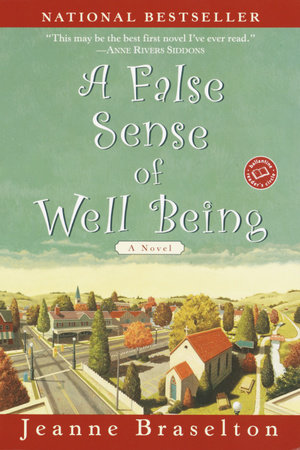Author Q&A
A Reader’s Guide
A Conversation with Monica McInerney
After exhausting herself on a whirlwind book tour of Australia and New Zealand, Monica McInerney thought she had already answered every question about herself and her books that she possibly could. But she graciously agreed to talk with her editor, Allison Dickens, and answer them again, plus a few new ones, for the Reader’s Circle.
Q: Since book clubs gather because of their love of books and reading, I feel compelled to ask: Are you a big reader? When did you first fall in love with books? Does reading influence your writing?
A: I’m a voracious reader. Two or three books a week, usually, getting up to one a day when I’m on holiday. My mum is a big reader, and that planted the seed. I’m one of seven children, and a cousin remembers calling at our house one afternoon to see kids running riot in the back garden, and Mum coming to the door with a baby on one hip, a toddler hanging on to her skirt, and a book in her free hand. A very strong memory for me is getting a book from my school library that had the quirk of a recipe written into the story. I remember making the cake, it tasting delicious, and my being amazed that something I had read in a book had become this wonderful thing. As children growing up in the country, we also had the big treat of books arriving once a month from the city library, chosen for us by an anonymous librarian. They’d arrive by train and my dad, the railway stationmaster, would call us over to collect them as though we were regular customers. I can still recall those nights–the feel and weight of the parcels, slowly unwrapping the brown paper and cardboard, that thrill of anticipation, not knowing what books might lie inside. It really did turn books into magical objects for me. When I was about twelve, Mum started working in the local library in the Clare Valley, and that was like a dream come true–not only could we go in and out and borrow as many books as we liked (she was a firm but flexible librarian), but we even had the key to it so could get in on the weekends if we had run out of books. Reading definitely influences my writing, inspiring me as well as showing me how other writers play with ideas and what is possible with a story. When I first started writing full-time I worried it would bring an end to my reading days, that I would always be too conscious of style or technique to be able to immerse myself. Luckily, that hasn’t happened. Stories grip me just as strongly now.
Q: Who are some of the authors that have inspired you throughout the years? Do you go back and read the same books again and again, or do you move on to new books once you’ve completed one?
A: Enid Blyton for the sense of wonder. Edith Nesbit for humor and family stories. John Wyndham for taking me across into adult books, and into other worlds. John le Carré for his strong and sure grasp of so many themes, political and personal, wrapped in wonderful fast-moving plots. Laurie Graham, for her sharp humor and quirky subject matter. Maeve Binchy for her warmth and understanding. Adriana Trigiani for her rich detail and insights into Italian Americans. I love discovering writers and seeing they have written lots of other books. I immerse myself in their world. I only recently discovered Rosamunde Pilcher, for example, buying one of her books [The Shell Seekers] when I was in Cornwall researching Family Baggage. I loved it and have now read everything she has written. I am always on the lookout for new books to read but also reread old favorites when I need a “comfort” read–Little Women and The Railway Children, as well as Garrison Keillor’s Leaving Home, are top of that list.
Q: One of the questions that came up with your previous novel, The Alphabet Sisters, was your relationship with your sisters and whether any of them were portrayed in the book. [For the answer, see the wonderful conversation between Monica and her sisters in the Reader’s Circle guide in The Alphabet Sisters.] How much of your real life is in Family Baggage? Do you consciously try to incorporate your own experiences into your novels? Do they ever creep in unannounced?
A: Family Baggage was actually sparked by three separate ideas. After writing about sibling rivalry in my last novel, The Alphabet Sisters, I started thinking about what impact on a family the arrival of a foster sister would have–a new family member arriving not as a baby sister or brother, but as a child, with its own strong personality and background. I also wanted to explore family dynamics from another angle–the pressures and expectations of a family business, in this case a travel agency. I love writing about travel, too, and I wanted to have fun with the idea of a theme tour. I initially thought about having the tour group following in the footsteps of Jane Austen, or Enid Blyton, then hit upon the idea of inventing a TV detective series. I needed to do plenty of research into each of those ideas, but I suspect much of the day-to-day interaction between Austin, James, Harriet, and Lara springs from my real-life experiences with my three brothers and three sisters–modified, of course! Of all my books, Family Baggage draws least on my own experiences, I think. One of the great things about being from a big family is it is an intense course in human relationships. You learn everything in a big family–in fact, in any family: how to love, how to argue, how to support, sympathize, be jealous, forgive, and understand. All of those emotions go into my books. I try hard not to make characters too much like my family members or friends, but I often borrow a phrase or a personality quirk, or even someone’s occupation, and build a fictional person from that starting point.
Q: If someone was going to create a “Family Baggage tour,” where would it go? Are there real locations in the novel?
A: It would start in several beautiful seaside towns on the east coast of Australia called Lorne, Queenscliff, and Apollo Bay, as Merryn Bay is a fictional composite of them. Off to Melbourne Airport for a flight to Bristol in southwest England and then a slow drive along the stunning coastal areas of Devon and Cornwall, past high cliffs, wild moors, historic towns, tiny harbor villages, and tucked-away beaches. My husband and I took two research trips to Cornwall to get a sense of the landscape, choosing villages that I liked the look of and wanted to use as locations. I then spent a lot of time staring at a map of Devon and Cornwall pinned above my desk, working out the itinerary for the Willoughby tour. I also spent a weekend in Cork, Ireland, walking the exact route that Austin and Nina take in the novel, seeing the city through their eyes, hearing what they would hear and going to the police station, the newspaper office, and the library. I acted the whole thing out. It’s one of my favorite parts of novel writing, exploring a real place that I plan to use as a location, while the fictional story unfolds in my head.
Q: One of the most moving elements of Harriet’s story for me was the fact that she was not present for the death of either of her parents. Obviously this affected her profoundly. I know you lost your father a few years ago. Was his passing in your mind while you were writing Family Baggage?
A: Very much so. My father died of cancer in 2000, after being diagnosed in April 1999, so we had some preparation for his death. Each of us had special, beautiful times with him in his last year. I can’t say if it helped lessen the grief in any way, though I think it did. His dying was so monumental for our family that it’s hard to imagine it feeling any worse than it did. Of the seven of his children, five of us were with him, with my mum and our parish priest, and two of my brothers were on their way, one brother from another state, the other from a town an hour away. I wanted them to be there so badly, but there just wasn’t time. We’ve talked about it since, and they both say that they are at peace with it, that it didn’t make Dad’s death any less or more hard for them. But I know I would have been desperately sad. I needed to be there at the moment he died, to be with him until the end. Harriet’s experience in the book came directly from those thoughts.
Q: Your father was a stationmaster for the railway in Australia. How do you think growing up with the railroad–the people coming and going, the opportunity for travel–has affected you and your writing?
A: It gave me a sense of freedom and adventure. Railway stations are very romantic places, with people passing through, parcels arriving, the sounds and smells of the trains, the look of the tracks. It was our playground–we held balancing competitions on the rails, used the railway yard for our family Olympics, spent many afternoons after school helping Dad sort parcels, sharpening all of his pencils with the lovely old sharpener that was fixed to the side of the wooden counter and made a great whirring sound as you wound the handle. Dad used to get a free train trip a year to anywhere in Australia and would take a couple of his children with him. I remember so clearly taking a trip to Sydney with my older brother Paul–he was about 12, I was 10. It was such an adventure, not just going to Sydney, but being away with our dad. He knew everybody in the railways, it seemed–as soon as we got onto the train there were welcomes and hair ruffles and special treatment–bags of chips and glasses of fizzy orange. In the evenings he’d sit in the lounge car talking to the conductors and other passengers, swapping yarns. I remember being really proud of him, sitting there swinging my legs and eating my chips and listening.
Q: The humor in your writing really shines through and lends such balance and depth to the sadness that the characters often have to struggle through. Where do you think you get your sense of humor? Is it inherited from your family, or have you developed it over the years? Do you have to work to inject humor into your writing, or do you feel it comes naturally?
A: I think everything I do springs from my family. We laugh a lot together. We argue a lot, too, but mostly it is a good time, lots of sitting around, quick dialogue, trying to outdo each other. There are different senses of humor among us. One of my sisters, for example, thinks there is nothing funnier in the world than slapstick Candid Camera—style humor, but she is also a very dry wit. Humor gets us through everything–it gives a sense of perspective, helps us not take anything too seriously. We cried a great deal after Dad died, but we also seemed to laugh a lot, needing to find lightness and brightness in whatever we could. Everything was so acutely sensitive. Those light and dark layers run together through life and make their way naturally into my stories, too. I don’t consciously think, Now it’s time to write a funny bit. The humor seems to weave into the dialogue or the plot of its own accord–it’s something I love to have there. I’m definitely always on the lookout for humor in my own life, too.
Q: Your novels all seem to revolve around a large family and the various misunderstandings and secrets that every family endures. Why do you choose to write about families (as opposed to another topic like, oh, say, spaceships)? Why do you think readers are drawn to family stories?
A: Spaceships! Love that–there’s an idea for the next book. Families intrigue me. Actually, people intrigue me, but the extra layer with family stories is there is a sense of loyalty or expectation between the people involved, which can make or break friendships and relationships. Again, it’s that sense that all life is under a family roof. Nearly everyone knows how it feels to be jealous of a sibling, angry with a parent, to feel close but also alone. We can all identify with the issues of family, I think.
Q: Every family has secrets. Do you think there are some secrets that should be kept? Would you care to take this opportunity to reveal any secrets in your own family? (We’ll understand if you say no!)
A: They would kill me! They are already suspicious that I moved to the other side of the world from them. Actually, my sisters keep threatening to write their own “true” version of our family life. They say I am much too nice about everyone. I think some secrets should be kept, if they are hurtful or if they would cause enormous pain to people by being revealed. But I also think most secrets have a way of revealing themselves. So if I am patient, I am sure all my own family secrets will tumble out in their own good time.
Q: In the novel, we see the story from various viewpoints as different characters take over recounting the action. Was it a conscious decision on your part to use many points of view? Was it freeing for you to be able to show the story from many sides, or more difficult?
A: As I was writing Family Baggage, I had a mental image of a lighthouse at the center of the family, its light slowly revolving, illuminating one character after another, while the others were kept in the dark. Again, I think it made it more realistic, as that is how things are in family life. It’s rare that everyone sits down together and discovers a secret or a truth about one another. These things are often slowly revealed: people making decisions to tell the others or not to tell, judging the best time or the best reason. Writing from lots of viewpoints gave me great freedom and scope. It helped me get to know each character and added many layers to the whole story.
Q: Your books are popular around the world, something many authors are not able to achieve. Do readers in different countries respond in particular to different parts of the books, or are they drawn to the same themes everywhere you go?
A: I’m very glad that my favorite themes of family, loyalty, and love resonate with people everywhere, even if we are living in different countries or speaking different languages. I think that most of us have a real curiosity about how other people live–emotionally and physically. I love that readers outside of Australia have really responded to my stories and to my “small-town” settings. It means a lot to me that readers in America, Germany, Italy, and other countries are reading about my hometown in the Clare Valley, picturing the vineyards or the Riesling Trail in The Alphabet Sisters, or imagining themselves on the Willoughby tour, exploring Devon and Cornwall with Harriet in Family Baggage.
Q: Are you surprised by what readers respond to in your novels?
A: Sometimes, yes. Now and again I’ve had letters from readers to say that they thought a particular scene was absolutely hilarious, and then I have read it over and been very puzzled, realizing that it wasn’t in fact meant to be at all funny. I heard from many people that they cried at the end of The Alphabet Sisters. That surprised me but also touched me very much. I cried a great deal while I was writing it, and I know that I was working through a lot of my own grief as I wrote it, but I was quite taken aback by its impact on lots of other people. I also loved how people responded to Lola in The Alphabet Sisters. Many people wrote to say they wished they had a grandmother just like her. I’d written exactly the sort of grandmother I’d loved to have had, so it was great to feel we all hanker for the same thing–someone wise and funny and irreverent in our lives, who also loves us unconditionally. I’ve had people be cross with me at plot twists: “How could you let that happen?” My Irish mother-in-law, Nancy, is always great with her comments: “Oh Monica, the things you put that poor girl through!”
Q: Do you write only fiction? Why are you drawn to writing novels in particular? I hear you may have dabbled in poetry at one point. Will we be seeing a book of poetry from you in the future?
A: I’ve been writing memoir pieces about my childhood recently, recalling our early days as real-life railway children, and have also written several travel articles for magazines, about life in Dublin and Australia. I enjoy switching between different styles of writing. I love the scope of novels, the whole canvas it gives me, inventing or researching locations, putting words into people’s mouths, sending people on physical and emotional journeys and then resolving it all in a hopeful or happy way. There’s a completeness to novels. I’ve also written children’s stories for my nieces and nephews, adventure stories about magical cubby-houses and toys, always starring them in lead roles. My time as a poet has been sporadic and mostly disastrous–as a child I wrote a Christmas poem, rhyming “pheasant” with “present” and won a book voucher that I managed to make last for almost a year. I stayed reasonably quiet on the poetry front for a couple of decades after that until 1990, when I met a lovely Irishman at a party. We got to talking about books and writing and he mentioned that he was a lover of poetry, Irish poets such as Seamus Heaney and W. B. Yeats in particular. I remarked eagerly that I had written a poem myself, and then launched into something I had (truthfully) written some weeks earlier: “My sister married a rector / She became a rector’s wife / And frankly if you ask me / The rector wrecked her life.” He was disgusted! “That isn’t poetry, it’s doggerel.” Fortunately, we got over that hump–we celebrate our fourteenth wedding anniversary next year.
Q: In one of your interviews [Preview, June 19, 2005] you revealed that you had actually written scripts for the fictional Willoughby TV series. How much background material do you generally create for your novels? Do you research locations and topics before you begin to write? Will we see Willoughby on the small screen anytime soon?
A: I write a huge amount of background material. That’s how I get to know my characters, by writing lots of scenes with them: at their workplace, in their private life, in conversation with friends and family. It won’t necessarily end up in the final story but it helps me get to know them. I needed to do the same thing with the Willoughby tour idea–before I could choose the highlights that the group of fans would want to visit, I had to write the whole series. I do a lot of research and a lot of double-checking of facts. In Family Baggage I mention ( just in passing) the wind farms in Cornwall and the road network in the west of England, and for some weeks I became an expert on both. I don’t know how successful a Willoughby TV series would be. Mind you, if they got the right actor to play Patrick Shawcross it might do very well indeed.
Q: And finally, a fun question: If you were going to take a tour based on a television show–like the Willoughby tour Harriet is leading in Family Baggage–which show would you choose, and where would the tour go?
A: Gilligan’s Island. No hesitation at all. I grew up watching it and it was my idea of the most exotic life. I loved the grass huts they lived in, the glamour of Thurston Howell III and his wife, the way they managed to have running showers and mod cons on a remote island, and especially the way they always seemed to be eating coconut cream pie. I’d like to spend a fortnight on a beautiful tropical island living just like the Gilligan’s Island characters.
